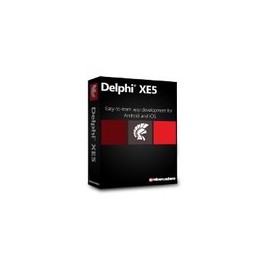

Therefore, the following code produces incorrect results: Operations return a value of type Int64 only when performed on one or more Int64 operands. In general, arithmetic operations on integers return a value of type Integer, which is equivalent to the 32-bit LongInt. Platform-independent integer types include ShortInt, SmallInt, LongInt, Integer, Int64, Byte, Word, LongWord, Cardinal, and UInt64. Platform-independent integer types always have the same size, regardless of what platform you use. Note: 32-bit platforms include 32-bit Windows, 32-bit macOS, 32-bit iOS, iOS Simulator, and Android. The following table illustrates their ranges and storage formats for the Delphi compiler. Using these types whenever possible, since they result in the best performance for the underlying CPU and operating system, is desirable. NativeInt, NativeUInt, LongInt, and LongWord. The platform-dependent integer types are transformed to fit the bit size of the current compiler platform. Integer types can be platform-dependent and platform-independent. For example, Inc(I) is equivalent to I := Succ(I) and, if I is an integer variable, to I := I + 1.Īn integer type represents a subset of the integral numbers.

The standard procedures Inc and Dec increment and decrement the value of an ordinal variable. Ordinal type identifier or variable of ordinal typeĪlso operates on short-string types and arrays.įor example, High(Byte) returns 255 because the highest value of type Byte is 255, and Succ(2) returns 3 because 3 is the successor of 2. The most important of them are summarized below. Several predefined functions operate on ordinal values and type identifiers. The declaration of an enumerated type can explicitly override this default. For other ordinal types, by default the first value has ordinality 0, the next value has ordinality 1, and so forth. Subrange types maintain the ordinalities of their base types. In most cases, if a value has ordinality n, its predecessor has ordinality n-1 and its successor has ordinality n+1.įor integer types, the ordinality of a value is the value itself. Further, each value has an ordinality, which determines the ordering of the type. An ordinal type defines an ordered set of values in which each value except the first has a unique predecessor and each value except the last has a unique successor. Ordinal types include integer, character, Boolean, enumerated, and subrange types. Simple types - which include ordinal types and real types - define ordered sets of values. Go Up to Data Types, Variables, and Constants Index


 0 kommentar(er)
0 kommentar(er)
